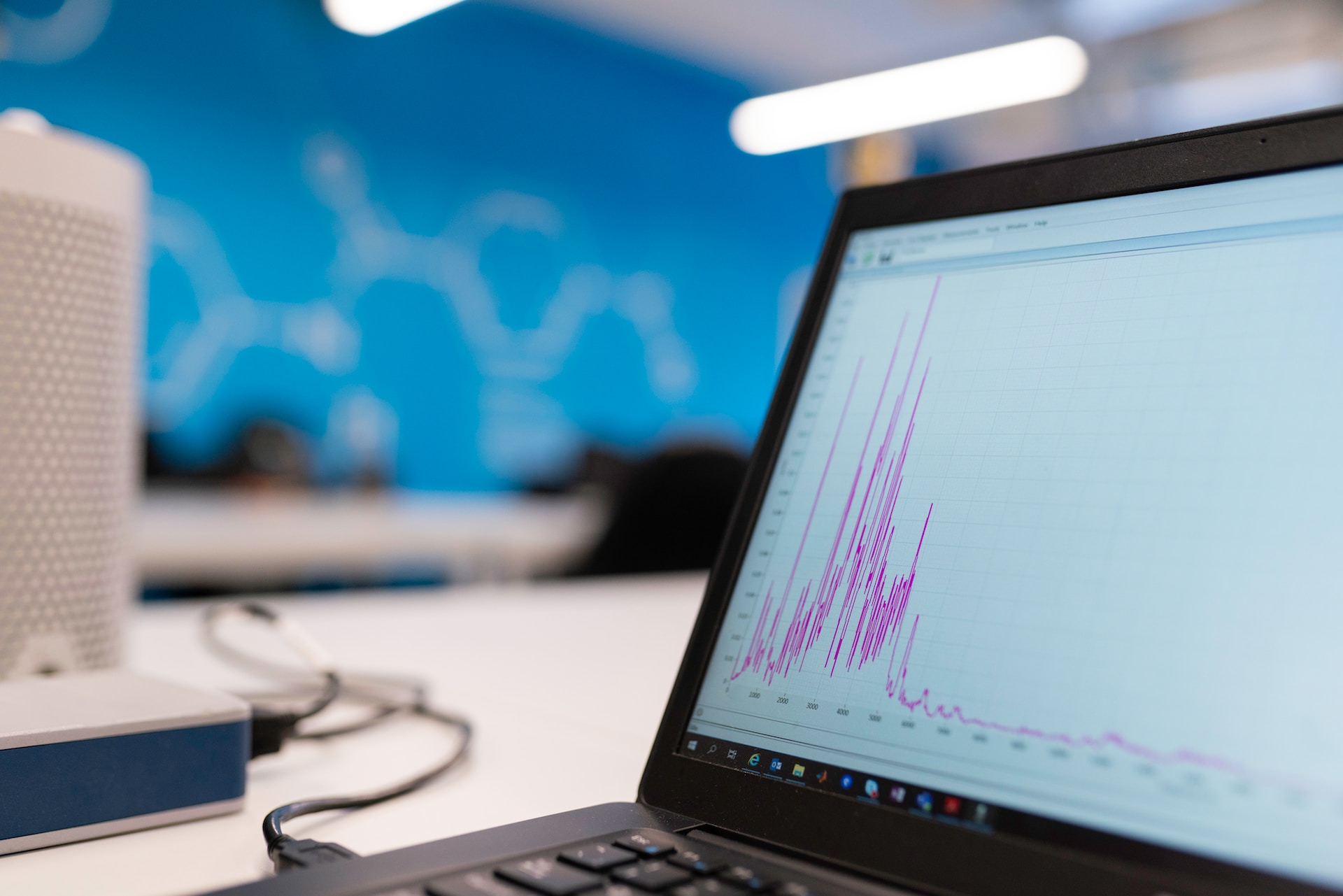Insights
Why Companies Should Work with a Recruiter for Biometrics Jobs
15 Dec, 20238 minutesSecuring top talent in the ever-evolving Life Science industry is crucial to driving innovat...

Securing top talent in the ever-evolving Life Science industry is crucial to driving innovation and meeting regulatory requirements. Biometrics jobs are vital to ensuring the long-term success of clinical trials.
As a 2023 paper published in npj Digital Medicine notes, the use of Biometric Monitoring Technologies (BioMeTs) has continued to grow in the clinical trial industry over the last decade, supporting the collection of real-world data and ensuring that disadvantaged populations can assist in the evaluation of innovative therapeutics, devices, and technologies.
In this guide, we explore the advantages of working with Life Science recruitment agencies for Biometrics jobs, highlighting why they’re essential for sourcing data professionals, managers, and other business functions for companies championing Life Sciences in the UK, USA, and Asia Pacific regions. We’ll also discover the benefits that Life Science recruitment agencies bring to the hiring equation, covering everything from cost-efficiency to the scalability and flexibility of their solutions.
The Range of Biometrics Jobs That Recruiters Can Support
Biometrics jobs across companies in the Life Sciences in the UK and beyond encompass a diverse array of roles, each of which plays a vital part in supporting and delivering clinical trials and research.
Before we establish the benefits that Life Science recruitment agencies bring to the table, we’ll explore a handful of the Biometrics jobs that a talent partner can help you to engage, evaluate, and onboard. When searching for top-tier candidates, it’s critical to identify scientifically educated recruitment professionals who understand the intricacies of the field, so collaborating with specialist agencies who are familiar with the entire data science life cycle can assist you when hiring for a wide range of business functions.
1. Clinical Data Managers
Often, Clinical Data Managers oversee the entire information strategy of the projects they’re engaged in. These experts ensure that all of the relevant patient, healthcare, and real-world information collected during a trial is captured, processed, and maintained with accuracy and security.
Their role is pivotal in guaranteeing data integrity, with these professionals ensuring that their research complies with regulatory and reporting standards.
Clinical Data Managers act as the gatekeepers of reliable, high-quality data for their organisations, working in close collaboration with all staff to contribute towards data-driven decision-making for the approval of new treatments. Their responsibilities ensure that all Clinical Researchers, Biostatisticians, and Database Programmers are empowered with a solid foundation.
2. Biostatisticians I/II/III
Biostatisticians play an integral role in clinical trials. Responsible for designing all of the statistical aspects of the research to be conducted—such as sample size, randomisation, and analysis plans—Biostatisticians at all levels, whether I, II, or III, use their mathematical and statistical expertise to interpret this information and provide insights on efficacy and safety.
Whilst Level I Biostatisticians typically focus on basic statistical analysis tasks, Level II and III professionals will be discovered in strategic roles, guiding the decisions of directors and supporting regulatory submissions.
These experts ultimately determine the success of a trialled drug or medical device, going to show how crucial Biometrics jobs are for broader public health outcomes.
3. Bioinformaticians
Bridging the gap between computer science, statistics, and biology, Bioinformaticians analyse the complex biological, genomic, and proteomic data gathered during the trial process to uncover significant patterns.
In an era of personalised precision medicine, Bioinformatics recruitment plays a vital role in identifying and onboarding these experts. It helps organisations identify biomarkers within patient populations and ultimately aids in developing future treatment plans for those with rare diseases and pre-existing conditions.
By 2027, the global Bioinformatics market is expected to grow to around $18.7bn, with demand for these jobs driven by a range of public and private sector funding inspired by the demand for personalised treatment options.
Bioinformaticians’ expertise in handling massive datasets and their ability to draw conclusions from this information makes them invaluable assets in the data science life cycle and broader clinical trial process. Their contributions help advance innovative therapies and treatments.
4. Statistical Programmers
Operating behind the scenes of the data science life cycle, Statistical Programmers are the technicians who facilitate their colleagues’ ability to transform raw data into interpretable and reportable results.
Working closely with Biostatisticians on developing and implementing analysis plans, Statistical Programmers enable the automated generation of tables, figures, and listings (TFLs) for regulatory submission.
These experts are vital to ensuring the accuracy and consistency of any data collected across the clinical trial process, ensuring they always adhere to industry standards and institutional guidelines. In short, their expertise underpins clinical trial decision-making.
5. Clinical Database Programmers
Responsible for the design, development, and maintenance of business-critical clinical databases, Clinical Database Programmers are vital within the field of Biometrics jobs. These databases are the backbone of data management practices during the clinical trial process, housing patient, drug, and device information that will go on to form regulatory submissions.
Clinical Database Programmers create user-friendly databases that adhere to the plans and analyses constructed by Bioinformaticians and Biostatisticians, ensuring data can be captured quickly, accurately, and consistently.
Playing a key role in supporting data entry and data cleaning responsibilities, without Clinical Database Programmers, the information generated during the data science life cycle would not have the quality and reliability required for robust statistical analysis.
The expertise of Life Science recruitment agencies lies in their ability to connect your organisation with professionals possessing these skills, empowering your hiring strategy for vacant Biometrics jobs.
If you’re interested in learning more about hiring for roles in Life Sciences in the UK, USA, Asia Pacific regions, or even further afield, make sure to read our recent guide on How to Attract Top Talent through Biometrics Recruitment for more expert insights into securing candidates for these business-critical roles across the clinical data science life cycle.

Why You Should Use Life Science Recruitment Agencies
So, now we’ve learned more about the Biometrics jobs that Life Science recruitment agencies can help hire for, we’ll look in more detail at the key benefits these talent specialists bring to the table. We’ll highlight five key areas that can benefit companies with even the most complex requirements.
The Life Science industry is always evolving, highly regulated, and continuously focused on innovation, demanding professionals with specialised knowledge and skills. Partnering with Life Science recruitment agencies offers a broad range of compelling advantages, especially when it comes to bringing high-quality candidates on board for Biometrics jobs.
1. Cost-Efficiency
Recruiting high-level talent for Biometrics jobs can be a costly and time-consuming process when it’s done in-house. Life Science recruitment agencies are equipped with the extensive networks of active and passive job-seekers necessary to expedite the hiring process, ultimately saving you money.
By leveraging the expertise of those focused on hiring for companies in Life Sciences in the UK and beyond, you can reduce the expense associated with writing job descriptions, advertising, pre-screening, and the often lengthy application and interview process.
Instead of pulling staff from their revenue-generating activities, utilising specialists experienced in Biostatistics, Biometrics, and Bioinformatics recruitment allows you to continue to focus on your core responsibilities and duties. These experts have the resources, technology, and tools they need to streamline the recruitment process and empower your hiring strategy.
2. Industry Expertise
Navigating the industry, particularly in different regions, requires a deep understanding of local regulations, market dynamics, and industry trends. Life Sciences in the UK and Europe, the USA, and Asia Pacific have nuances and requirements, making scaling your operations into an overseas territory challenging.
Not every life sciences recruitment agency boasts recruiters with ex-industry experience or a scientific background. It is imperative to emphasise the significance of these qualifications when selecting an agency. While discussing locations is important, it is equally crucial to prioritise industry experience and educational background.
Recruitment agencies specialising in Biometrics jobs distinguish themselves by their extensive experience in sourcing and interviewing candidates within specific regions. What sets them apart is their profound understanding of the local talent markets. This expertise not only empowers you to connect with candidates effectively but also positions you to outshine the competition.
Their recruiters, equipped with ex-industry experience and scientific backgrounds, bring valuable insights into regional differences. This insight ensures that the candidates they recommend seamlessly integrate into your organisation. Moreover, it guarantees that these candidates are attuned to the specific consumer, patient, and healthcare demands prevalent in those markets.
3. Specialist Support for All Stages of the Clinical Trial Process Life Cycle
The clinical trial process life cycle is complex, from collection and cleansing to secure storage, analysis, and interpretation. Life Science recruitment agencies specialise in understanding the unique nuances of each stage in the clinical trial process, ensuring that you have rapid access to the professionals you need.
Connecting with candidates with expertise in data management, data analysis, interpretation, and reporting is vital for all Biometrics jobs, given the quality and accuracy at the heart of all roles within the sector.
Whether you require interim employees for the duration of a specific project or you’re looking for a permanent executive candidate, you can discover top talent for your vacant roles at any stage of the process, ensuring that you’re connected with candidates who are tailored to your unique challenges.
4. Reduced Time-to-Hire
With time-to-hire being the number one data point being tracked by hiring managers and business leaders in the Life Sciences, reducing the duration between application and onboarding is a key indicator of success for Biometrics jobs.
The pace of the Life Science and clinical trial industry is demanding, with strict timelines and regulatory requirements to consider. Life Science recruitment agencies have established processes for sorting, vetting, and onboarding candidates swiftly, whether they’re permanent employees or contractors.
With access to a vast talent pool and the industry-specific knowledge required to properly assess and interview them, recruiters for Biometrics jobs can significantly reduce the time-to-hire when compared to in-house hiring managers, allowing your projects to progress without unnecessary delays.
5. Scalable, Flexible Solutions
The requirements for Biometrics jobs can differ from project to project. Whether you require a single Data Scientist for a short-term contract or a team of Clinical Data Managers for a long-term series of trials, Life Science recruitment agencies offer you a range of scalable and flexible solutions.
With many offering a range of strategies for acquiring talent, including contract staffing, retained recruitment, and executive search, organisations can connect your organisation with candidates at all levels of seniority.
The industry is dynamic and fast-paced, meaning that business leaders often need to adapt to changing needs and consumer demands. Working with Life Science recruitment agencies can help organisations maintain an agile workforce that meets the demands of evolving and increasingly complex projects.
Given the statistics on hiring numbers in the clinical trial industry—with 6.6 million vacancies and only 5.7 million available for hire—it’s clear that talent shortages are biting the Life Sciences just as hard as they are in the tech-forward sectors we often read about in discussions of skills gaps.
As a result, working in close partnership with Life Science recruitment agencies can empower your talent strategy for all Biometrics jobs, from Statistical Programming to Bioinformatics.

Life Science Recruitment Agencies: Support for Biometrics Jobs
So, what have we learned from this guide? The synergy between companies seeking exceptional talent for Biometrics jobs and specialised Life Science recruitment agencies is paramount for success in the ever-evolving landscape of clinical trials and the broader Life Sciences in the UK and beyond.
The continued growth in Biometric Monitoring Technologies (BioMeTs) use underscores these professionals' pivotal role in the clinical data science life cycle. Collaborating with agencies experienced in Biostatistics, Data Science, and Bioinformatics recruitment can help to connect you with candidates for a vast array of roles, including Clinical Data Managers, Biostatisticians, Bioinformaticians, Statistical Programmers, and Clinical Database Programmers.
These experts are instrumental in safeguarding information accuracy and integrity, enabling data-driven decision-making, and advancing innovative therapies.
Furthermore, the advantages of partnering with Life Science recruitment agencies encompass cost-efficiency and specialised support throughout the data science life cycle, reducing time-to-hire and enabling you to leverage industry expertise. These scalable, flexible solutions help you alleviate the challenges of connecting with candidates amidst talent shortages, ultimately fuelling the progress of clinical trials and research progress in the UK and beyond.
Global Recruitment Solutions for Biometrics Jobs
For almost two decades, Warman O’Brien’s seasoned consultants have been aiding enterprises in the trial and pharmaceutical development domain to engage with experts for their Biometrics jobs. Established in 2005, we’ve extended our reach across the globe, providing talent solutions for companies in Life Sciences in the UK, USA, and Asia Pacific regions.
We cover a wide spectrum of positions, catering to both interim and permanent roles, ranging from entry-level to executive positions. We continue to make appearances and are committed to furthering the Life Science industry at prominent events such as PHUSE, PharmaSUG, and the ASCGT’s annual gatherings.
Contact us today to discuss your unique hiring needs, no matter how complex.



